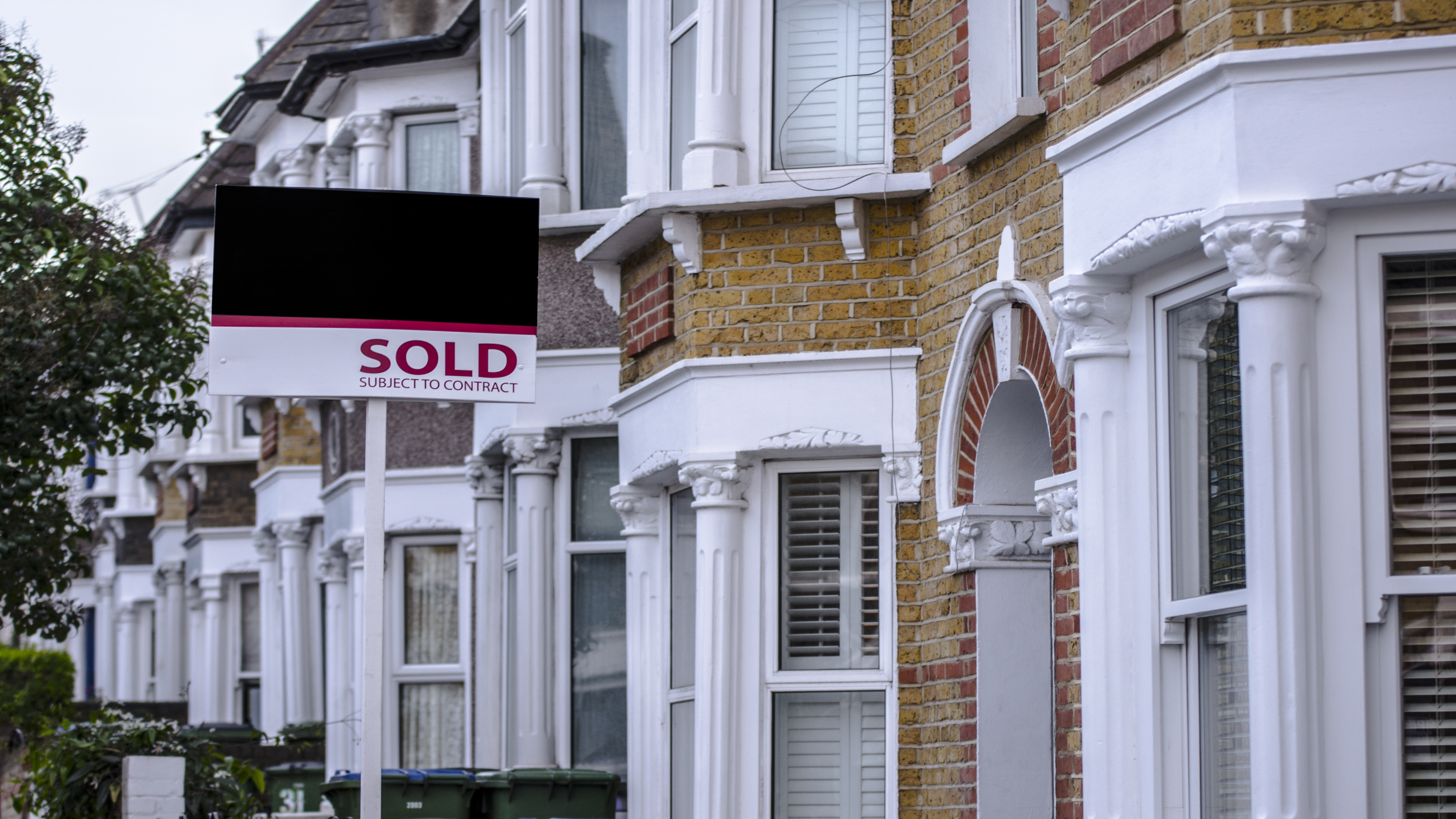
Bring your dream home to life with expert advice, how to guides and design inspiration. Sign up for our newsletter and get two free tickets to a Homebuilding & Renovating Show near you.
You are now subscribed
Your newsletter sign-up was successful
Chances are you’ve already come across the phrase ‘mortgage valuation’ if you’re buying a house and need a mortgage. Commissioned by lenders as a way of assessing properties’ suitability for purchase, understanding how mortgage valuations work is a must for any prospective homeowner.
Similar to a building survey, though definitely not a replacement for one, a mortgage valuation helps determine whether a property has fair market value. It also informs the lender about anything that may affect the property’s value as security for a proposed loan, such as significant defects and/or required repairs.
In this guide, we look at everything you can expect from the mortgage valuation process, from length of time and cost to exactly what surveyors are investigating.
What Is a Mortgage Valuation?
A mortgage valuation is an essential survey commissioned by a lender to establish a property's value and suitability as security for a loan. Chiefly, your provider is the one who benefits from the undertaking of a mortgage valuation.
At some point during your mortgage application, the lender will be in touch with you about arranging a mortgage valuation. This will allow them to briefly inspect the property and check that it’s actually worth the amount you’re intending to pay for it.
Despite a mortgage valuation being carried out on the lender's behalf, you can still use it to see if you’re potentially overpaying for your property.
Keep in mind that a mortgage valuation is not the same as a full structural survey; it simply confirms the property’s value and suitability for the lender's purposes. Finding a surveyor that thoroughly inspects your new home for any major faults or issues will be up to you to organise yourself, independently.
Bring your dream home to life with expert advice, how to guides and design inspiration. Sign up for our newsletter and get two free tickets to a Homebuilding & Renovating Show near you.
How Long Does a Mortgage Valuation Take?
“There are different levels and types of valuations for mortgage purposes,” explains Paul Wheatcroft, Account Director at My Local Mortgage. “Some take longer than others, both in their execution and organisation.
“A standard valuation will typically take less than 30 minutes and can be arranged fairly swiftly.
"On the flip-side, an in-depth Home-Buyers Report or Building Survey can take several hours and a few days to arrange,” he says.
These timeframes give the lender-approved surveyor enough scope to look around the property, conduct their checks, and provide initial feedback that will then help the lender make an informed decision regarding its mortgageability.
A mortgage valuation may flag up the need for further surveys, such as damp, structural or drainage surveys, which serve as great indicators of a property’s condition.

What Is the Mortgage Valuation Process?
Typically, a mortgage valuation consists of three elements:
- The visit
- The evaluation
- The outcome
The lender will arrange for a surveyor to visit the property you intend on purchasing. Their surveyor will then inspect the property for around half an hour, making sure to note any information that the lender may find pertinent.
The surveyor your lender picks will typically be a qualified member of the Royal Institution of Chartered Surveyors (RICS).
The evaluation itself is designed to provide the lender with details of any potential risks to the home’s mortgageability. For instance, if the property has been built using non-standard materials or potentially subject to structural movement, the mortgage valuation will flag this, as it constitutes increased risk for the lender.
How Much Does a Mortgage Valuation Cost?
Various factors can affect how much you pay for a mortgage valuation, from the type of property you’re purchasing, such as old or listed buildings, to the specific requirements of your chosen lender.
Sometimes it is possible to combine the mortgage valuation with a building survey, although this can be expensive, with total prices ranging from anywhere between several hundred and one thousand pound.
“If you're fortunate, it may cost you nothing as part of your mortgage product,” explains Paul Wheatcroft, Account Director at My Local Mortgage, “especially for remortgages and often for first-time buyers as an incentive.
“Aside from these situations, valuations typically range from circa £200-£1,000, again depending on the level/detail of the report.
“You might, for example, find someone buying an older property that clearly needs renovation/modernisation decides to invest in an expensive survey to really explore what they may be getting themselves into, even if they are cash buyers!”
Whichever route you choose, though, it is essential that you always account for the expense of a mortgage valuation alongside your other house survey costs.
What Happens After a Mortgage Valuation?
Once the mortgage valuation has been completed, the surveyor will send their report to the lender, who will then determine whether or not the property is mortgageable.
Some lenders provide applicants with a copy of their mortgage valuation report; however, this is not always possible, so make sure you choose a provider that can accommodate your needs before committing to anything.
If your mortgage valuation is level, this means that everything is in order and you can continue with the homebuying process unencumbered. You may also receive a high mortgage valuation, which suggests that what you’re paying for the property is below market value.
Unfortunately, it is also possible that you could receive a ‘down valuation’, meaning that the surveyor has valued the property as lower than what you’ve agreed to pay for it. If this is the case, you may wish to reconsider and renegotiate your offer.

The Mortgage Valuation Survey — What Do They Look For?
The whole purpose of a mortgage valuation is to establish whether the property you intend to buy is, in fact, a sound investment. To ensure this, the surveyor will examine anything at face value that could be seen as having a detrimental effect on the property’s value both as a living space and financial asset.
“Aside from valuing the property itself, they will basically look for any issues with it,” Paul Wheatcroft of My Local Mortgage explains.
“Typically, potential damp, subsidence, electrical and structural problems will be the main focus, but indeed, anything that will intrinsically affect the value of the property will be included.
“They will sometimes 'down value' the property based on these findings, or add a caveat that certain works need to be carried out prior to the completion of any sale. There are no hard and fast rules to a mortgage valuation; anything can happen, it all depends on what they find!”

What Happens If the Mortgage Valuation Is Lower Than Your Initial Offer?
If a surveyor has valued the property you're planning on purchasing at less than what you've offered for it initially, this constitutes what is sometimes known as a 'down valuation'.
According to London-based estate agent Benham and Reeves, approximately 400,000 properties were down valued between the summer of 2020 and 2021, indicating that this practice is becoming more and more prevalent in the homebuying process.
A surveyor might down value a property for any number of reasons, but some of the most common include:
- Ambitious asking prices
- Problems with the property
- Lenders being cautious
If you're faced with a down valuation from your lender and don't know what to do, take comfort in the fact that there are pathways available to you.
First and foremost, try to renegotiate your original offer with the seller — or simply lower it to match the valuation outcome. They may be open to a revised price in light of your mortgage valuation's findings.
Alternatively, you could increase your deposit to cover the cost of the down valuation. This may mean dipping into savings you've allocated for other household expenses or renovations, but if it helps expedite your purchase, you must give due consideration to all viable options.
Be advised, a down valuation doesn't necessarily mean that you'll no longer be able to afford your dream home; however, you may find yourself needing to make certain financial allowances so that the sale can still go ahead.
Rob Keal is the Content Editor at Homebuilding & Renovating. With a background in content marketing, he began his career back in 2016 as a freelancer, before honing his craft at various digital marketing agencies. Looking to specialise in DIY and homes, he joined the team in February 2022.
Renovation has been part of his life since he was nine years old, when his parents bought a medieval cottage and completely revived it, introducing him to kitchen remodels, loft conversions, landscape gardening, and much more besides along the way. A bedroom extension and patio refurbishment are among his next planned projects. He is also passionate about interior design and landscape gardening.
